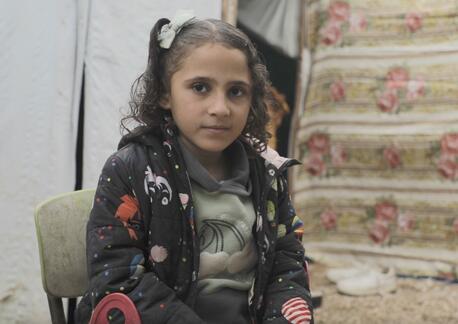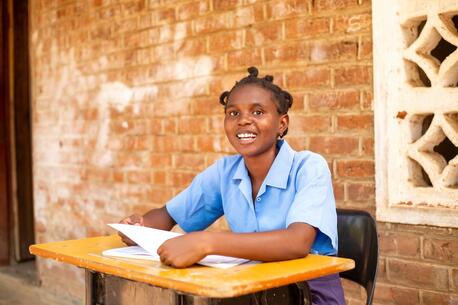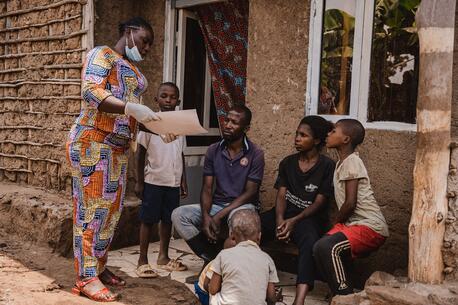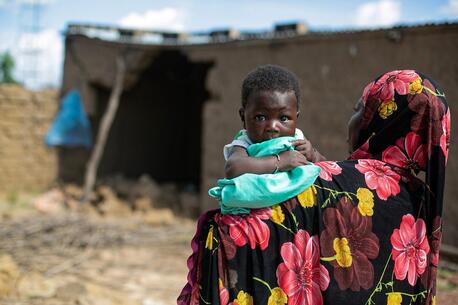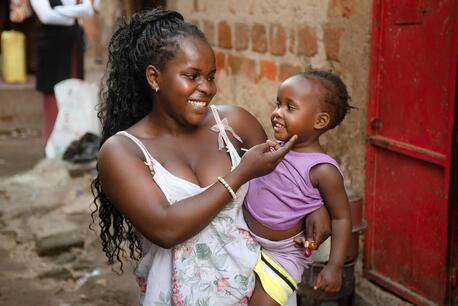
UNICEF in Uganda
Life in Uganda holds many dangers for its most vulnerable children and families. Learn what UNICEF is doing to create a safer and healthier environment for Uganda's children.
Multiple threats to the children of Uganda
Children and families in Uganda are beset by a panoply of urgent problems, aggravating already difficult conditions.
Ongoing conflict in the neighboring countries of Sudan, South Sudan and the Democratic Republic of the Congo, alongside long-standing internal strife in Uganda's North, has produced a refugee population of 1.6 million people — more than half of them children.
Flooding, worsened by climate change — and the landslides that often come with it — affects almost 50,000 people each year, causing displacement and aiding the spread of disease as water systems become damaged or polluted. Cholera is a chronic problem particularly in the southeastern Kayunga and Namayingo districts due to annual flooding.
The country's already fragile health care system has been overtaxed by several public health challenges, including an Ebola outbreak in late 2022/early 2023, regular flare-ups of cholera, COVID-19 and HIV. While HIV infection rates are much lower than they were at their peak in the 1980s and 1990s, they remain dangerously high.
Food insecurity is widespread in Uganda, and especially dire in Karamoja, a subregion in the northeast corner of the country, due to severe drought, isolation and endemic poverty, creating a major nutrition crisis among young children and pregnant and lactating mothers.
With all of these obstacles, access to education remains out of reach for many of Uganda's youth. Preschool enrollment is at less than half the eligible population, enrollment in secondary education at only 12 percent.
Flooding and conflict have damaged school infrastructure and displaced school-age children, keeping them out of the classroom for extended periods. Unenrolled children are often forced to work, and many are exposed to heightened protection risks including sexual exploitation and abuse.
How UNICEF is helping children in Uganda
The complex web of problems impacting the health and well-being of Uganda’s children and families requires a wide-ranging set of responses. UNICEF Uganda employs a comprehensive strategy to address immediate problems and their underlying causes.
In cooperation with the Ugandan government, UNICEF is doing a number of things to build out health care systems and access to services, combat child malnutrition, expand the supply of safe water, reduce disaster risks and mitigate the effects of climate change, among other priorities.

In disaster-prone Karamoja, UNICEF is working to strengthen household resilience to economic and climate shocks and shore up social protections.
UNICEF-supported humanitarian cash transfer programs provide emergency funds directly to refugees and other families in need. A related program that provides transportation vouchers is helping to improve access to health care facilities for those living far away from the nearest clinic.
Here is a look at some other ways UNICEF is focusing humanitarian action in Uganda.
Health and nutrition
UNICEF supports the Ministry of Health's response and recovery plans during disease outbreaks while also working to strengthen disease prevention and treatment and implement other measures to reduce infant and maternal mortality.
These efforts include: supporting routine child immunization programs, supporting timely identification and treatment of severe acute malnutrition, also known as child wasting, and facilitating treatment of children with malaria, pneumonia and diarrhea.
UNICEF has also worked alongside local partners to implement a national plan to strengthen the response to pediatric HIV, helping to reduce transmission and increase the proportion of infected mothers and children receiving antiretroviral drug treatment.
To improve child nutrition and prevent malnutrition, UNICEF supports counseling for caregivers and pregnant women on infant and young child feeding and other best practices. A UNICEF-supported program providing supplements of vitamin A and iron has already reached some two-thirds of the population in high-risk areas like Karamoja.

Water, sanitation and hygiene (WASH)
UNICEF's WASH work in Uganda includes emergency response — targeted interventions such as distributing water purification tablets during cholera outbreaks — and working with the government to integrate improvements in WASH facilities with efforts to strengthen climate resilience.
Priorities include improving water-management systems in small towns to reduce waste; installing remote sensors to monitor water safety in boreholes; and building new WASH systems — some solar-powered — in schools and health centers.
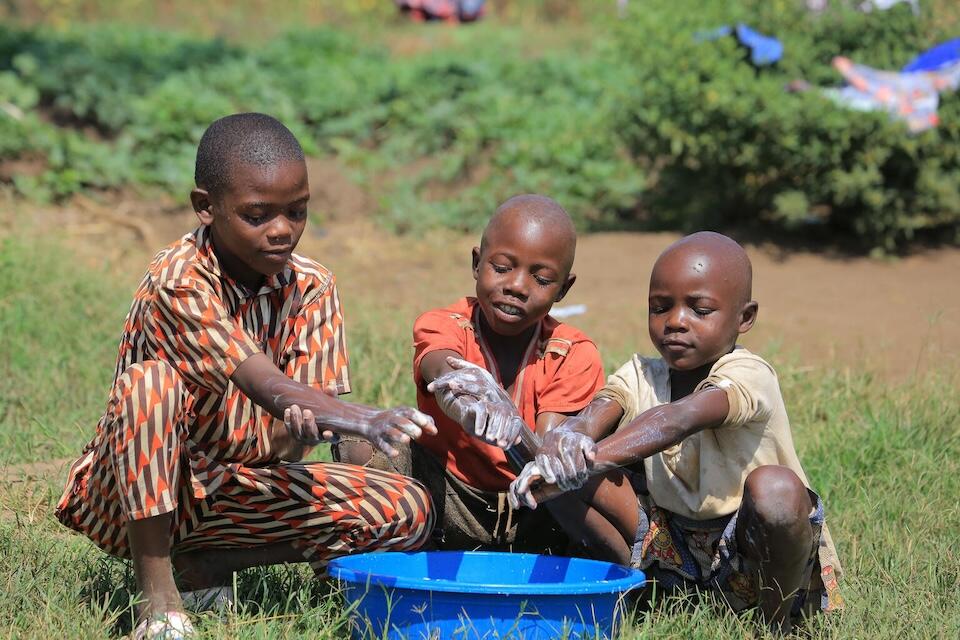
Education
In education, UNICEF is focused on bringing quality education to all of Uganda’s children. Priorities include increasing student enrollment and improving completion rates/preventing dropouts. UNICEF also works with partners to combat gender bias and ensure girls are given an equal opportunity to access — and complete —their education.
For example, UNICEF supports an Accelerated Education Program that has helped out-of-school adolescents in Isingoro District return to learning and an EU-sponsored Gender for Development Uganda program that helps girls transitioning to secondary education.
UNICEF also supports pre-primary education through the Early Childhood Development centers it assists in priority districts around Uganda, including refugee settlements.

UNICEF provided tents and textbooks, among other emergency supplies, when flooding in the Kisoro district in mid 2023 damaged school buildings, forcing the schools to close to students. The tents allowed students to get back to learning in temporary classrooms.
Child protection
UNICEF also works with local partners in Uganda to strengthen social safety nets, eliminate child labor and trafficking and prevent all forms of violence against children and girls.
These efforts include:
- advocating for the government to end child marriage and female genital mutilation (FGM)
- promoting awareness and access to services for the prevention and mitigation of gender-based violence and sexual exploitation and abuse
- supporting the training of social welfare officers in mental health and psychosocial support
- providing counseling to survivors of violence, such as those impacted by attacks in Kasese in June of 2023
UNICEF is committed to protecting the health, well-being and security of every child in Uganda. By building capacity and strengthening systems at the district level, UNICEF works to link humanitarian needs with longer-term development goals, responding to urgent crises while also improving the prospects of Uganda’s children for a better, safer future.
You can help. UNICEF works in 190 countries and territories to ensure children are healthy, educated, protected and respected. Support UNICEF's work in Uganda and around the world. Donate today.
